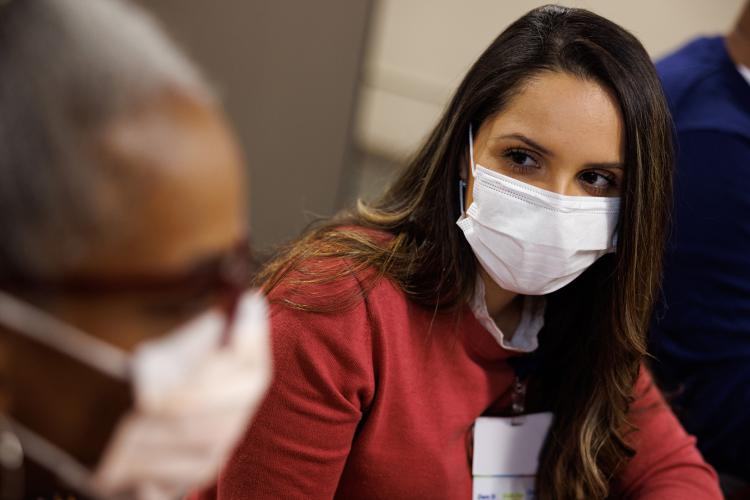
Following the 2018 Santa Fe High School shooting in Santa Fe, Texas, politicians and mental health professionals in Texas collaborated on an initiative to help with children's mental health in the state. During this collaboration, they established several programs to expand access to care for children and adolescents in Texas. One of the programs created was Texas Child Health Access Through Telemedicine (TCHATT).
TCHATT is a program that provides limited, free telemedicine therapy to all children in Texas school districts expressing emotional needs that exceed the care the school counselor can provide. The program assists students in all Texas public, private, religious, or charter schools.
"TCHATT has enrolled programs, so we make connections with schools, and once the contract is set, all any student in those schools have to do is go to their counselor or teacher and say they want services," Constance Siegel, LCSW, CCTP II, Manager, TCHATT & CPAN Programs said. "We are targeting all schools in Texas, so if they're in a school that doesn't have TCHATT, all they need to do is talk to their counselor.”
The program allows children to receive free evidence-based emotional health therapy by phone from home or school. The child meets with a licensed therapist or psychiatrist and completes four to five sessions to help improve their overall mental health. After reaching the limited amount of sessions, children will have the opportunity to further their services with an outside mental health service.
"Being a part of the TCHATT program from the beginning has been so special because I have been able to contribute to the mental health services we'll be providing to families," Laura Chicaiza, LMSW, QBA, TCHATT, Therapist said. “As a TCHATT therapist, I'm not only helping the community, but I'm helping support families endure the mental health crisis this new generation is facing."
The TCHATT team consists of the clinical supervisor, Tisha Calhoun, manager, Constance Siegel, two case managers, and seven therapists. The therapists are on the frontline of the TCHATT program because they are the child's first point of contact, so they must help the child feel comfortable during the process.
"Being the first person to introduce the program, my goal is to provide them with a trustworthy environment, so that they're empowered to continue through the services for their healing," Chicaiza said.
Through the collaboration of the Senate, JPS Health Network, and the University of North Texas Health Science Center, they have created a program to improve the life of each Texas child dealing with changes in their behavior or mood, experiencing thoughts of suicide or self-injury, or challenges in their relationships.
"TCHATT has been a part of JPS, for two years. It started right before COVID, so the start was a little slow, but last fall, we hit the ground running with the school services, and we've seen tremendous growth," Siegel said. "Right now, we serve almost 250,000 children in nine counties.”
Siegel said although the COVID-19 pandemic did expedite the number of students served, mental health access has always been a need. It just took the right resources to bridge the gap between when a child needs services and when they can get long-term mental health services.
"What a lot of people don't realize is it can take up to six months in Texas to see a child therapist, psychiatrist, or psychologist,” Siegel said. “This program fills that gap."
The start of school is the perfect time to reach out to children to inform them of the services offered.
"Students today are under a lot of pressure," Siegel said. "Following the school shooting we had last spring, they're returning for the first time, which can be scary. Add to that the grief of COVID with the loss children have experienced over the last two years and the daily stressors of school. There is an abundance of reasons why children need mental health care."
The TCHATT program serves children five and up, including adults still in school who deal with the struggle that comes with college entrance exams and the transition into adulthood.
"Kids going into adulthood need us, and that is the beauty of TCHATT," Siegel said. "Texas school children don't stop being children at school at 18. We can have a 21 year old in school, and they can get services with TCHATT for free."
The TCHATT professionals suggest parents and school personnel reach out when they first see a shift in the child's behavior.
"We don't want someone waiting until they're in a crisis,” Siegel said. “We’re not a crisis program. We can get someone crisis help, but we want someone to reach out the minute they notice something's going on with themselves or their child."
Access to mental health resources through TCHATT is not only offered during the school year. Parents and children can expect to receive these resources year-round.
"Towards the spring, our counselors start looking for who might be a good fit for the summer or group programs, then give us the information in advance," Siegel said. "With the counselors who are available year-round or through the school year during fall, winter, or spring break, they can submit referrals to us 24/7, 365 days a year, electronically. "
Improving children's mental health is the goal of TCHATT representatives, and they're committed to serving the children in Texas and impacting their lives. A child can expect help despite their insurance or socioeconomic status.
"We will accept families that meet the criteria for the level of care that we provide, and we welcome every family to reach out to us so they can start their healing," Chicaiza said.
